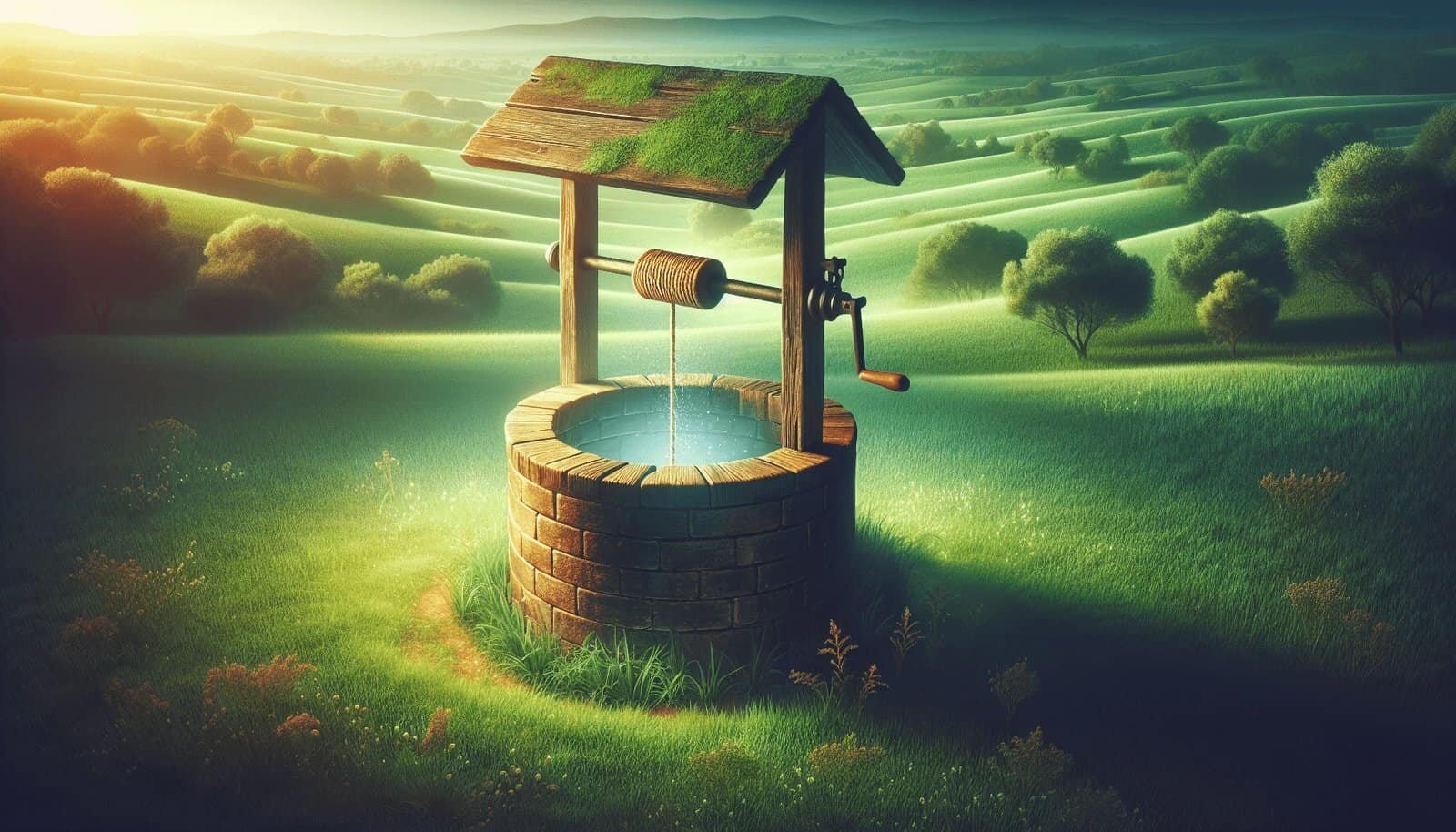Have you ever wondered whether your well system is silently leaking, or if perhaps you should take precautions before stepping away for a while? It’s an important topic, as a leaking well system can lead to wasted resources, higher costs, and potentially more serious issues down the line. It’s crucial to be aware of the signs of a leak and understand when and why you might need to cap your well if you plan on being away for an extended period.

What is a Well System?
Before we dive into detecting leaks, it’s useful to define what a well system is. At its core, a well system is a structure created to access groundwater for various uses, such as drinking, irrigation, or industrial purposes. The system typically includes a well shaft, a pump, and various pipes and control systems that help deliver water from the ground to where it’s needed.
Components of a Well System
Each well system is unique, but they generally have several key components. Understanding these can help you better grasp whether there’s a problem, like a leak, that needs your attention.
- Well Shaft: This is a vertical hole drilled into the ground. It delivers groundwater up to the surface.
- Well Pump: Pumps water from the well to the surface. There are different types, such as submersible pumps placed inside the well and jet pumps located above ground.
- Piping System: Carries water from the pump to your home or facility. Includes various hoses, fittings, and possibly even filters.
- Pressure Tank: Helps maintain water pressure at a consistent level for use.
- Control Components: Includes pressure switches, gauges, and sometimes treatment systems, which help monitor flow rates and ensure water quality.
Signs That Your Well System May Be Leaking
Now, how do you determine if there’s a leak? There are several indicators you should watch for:
Decreased Water Pressure
One of the first signs of a leaking well system is a noticeable drop in water pressure. If you’ve noticed that your faucets or showerheads aren’t providing the same pressure they once did, a leak could be a potential culprit.
Increased Utility Bills
A less obvious sign of a leak is an increase in your utility bills, particularly if related to water usage. If your monthly expenses have inexplicably climbed, it might be due to water being lost as it leaks from the system instead of reaching its destined points of use.
Persistent Wet Spots
Unexplained wet spots in your yard or near your well could mean a leak. These spots might not dry out even during warm weather, signifying water is escaping where it shouldn’t.
Unusual Sounds
A leaking well system might produce strange noises. If you hear constant running water or your pump seems to cycle on and off more frequently than normal, that’s a red flag you shouldn’t ignore.
Sediment in Water
If you notice an increase in sediment or foreign particles in your water supply, it might mean that your system is compromised. A leak can cause infiltration of dirt and debris into your water, affecting its quality.

Causes of Well System Leaks
Understanding the potential causes behind a well leak can be helpful in pinpointing the issue and deciding on the best course of action for repair.
Aging Infrastructure
Most well systems have a life span, and with time, components like pipes and seals degrade. Corrosion or mechanical wear and tear can ultimately lead to leaks.
Poor Installation
If the well system wasn’t installed correctly or didn’t meet local guidelines and standards, the components could fail prematurely, resulting in leaks.
Ground Movement
Geophysical changes can put stress on well components. Ground movement might either fracture pipes or shift joints out of place over time.
Freezing Temperatures
In colder climates, wells can be susceptible to frozen tubes or pipes, which can then rupture, especially if systems were not properly weatherized.
What to Do if You Suspect a Leak
If you suspect your well system is leaking, don’t panic; take measured steps to address the issue.
Conduct a Basic Inspection
Begin with a visual inspection of the visible components of your system. Look for obvious signs of damage, corrosion, or wear and tear that might be contributing to your issue.
Call a Professional
While DIY assessments can be useful initially, it’s advisable to engage a professional for a thorough investigation. Many leaks can be challenging to diagnose without specialized tools.
Regular Maintenance
Schedule regular check-ups for your well system. Annual maintenance can help catch potential issues before they become major problems while keeping your system running efficiently.

Should I Cap My Well When Away for a Long Time?
If you’re planning on being away for a significant period, such as an extended vacation or an out-of-season residence, you might wonder whether capping your well is advisable.
Understand Why You Might Cap a Well
Capping a well while you’re away isn’t just about preventing leaks or preserving water; it’s also about security and safety. A capped well is less likely to suffer from contamination from surface water or debris, and it can also prevent unauthorized or accidental access.
Potential Benefits of Capping a Well
- Protection from Contaminants: By capping your well, you limit the introduction of potential pollutants and contaminants into the water system.
- Safety Measures: Prevents accidental falls or injuries related to the openings of the well.
- Conservative Measure: Helps ensure that the well system remains untapped and unharmed while not in use.
Considerations Before Capping
Not all wells need to be capped when left inactive for a time, and doing so may require permits or special considerations. Make sure to:
- Consult Professionals: Before capping, seek advice from a well service professional to understand best practices and legal guidelines.
- Consider Long-Term Costs: While capping is a temporary measure, you should account for costs which could add up if the system requires re-opening or re-installation.
Temporary vs. Permanent Capping
There’s a difference between temporary and permanent well capping. Temporary capping uses less invasive methods to close off the well, suitable for idle periods. Permanent capping, however, involves sealing the well when it is no longer in use and should be done by a professional to ensure compliance and efficacy.
Long-Term Care of Your Well System
To avoid leaks or the need for capping altogether, here are some tips to ensure the longevity and efficiency of your well system.
Routine Inspections
Yearly checks can help diagnose smaller issues before they require more significant repairs or lead to leaks.
Water Testing
Regular water testing not only helps ensure potability but can alert to possible leaks if there’s a change in water composition.
Professional Servicing
Depending on the complexity of your system, having a professional come in periodically for maintenance can be a wise investment.
Winterization
Ensure your system is prepared for harsh weather conditions to prevent freeze-related damages.

Closing Thoughts
Knowing the signs of a leaking well system could save you from costly repairs and other potential headaches down the line. Coupled with understanding when and why to cap your well, especially if you anticipate a long absence, you can maintain the functionality and dependability of your water supply. Remember, proactive care and attention to your well system are your best defenses against leaks or other issues. Regular maintenance, timely inspections, and staying informed can go a long way in ensuring your well system operates smoothly for years to come.

